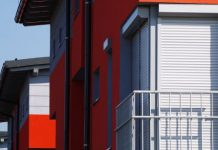Instruments and tools that are used for analytical and measuring purposes in manufacture and research, must adhere to strict standards. These standards or specifications apply to the instruments that are used alongside complex machinery and programmable applications in which reliability and precision are of the utmost importance.
The only way to ensure the reliability of a measuring or analytical tool or instrument is with instrument validation and qualification. The process improves the reliability of the instrument so that it provides accurate results and is designed for its intended use. Manufacturers, laboratories, and companies will have confidence that the instruments they use are effective in delivering reliable information about the quality of manufacture, product safety, and various performance standards.
Qualifying standards are documented and must be implemented in accordance with international standards for validating analytical instruments.


Let’s take a closer look at the best practices for validating instruments.
Qualifying Instruments
Instruments must undergo the process of validation including all tools and equipment that are used for measurement and analytic purposes.
These types of instruments are classified into three categories including standard laboratory equipment, instruments used for the measurement of specific parameters, and computer-based or electronic instruments applied in laboratory settings.
When an instrument used in measuring parameters or in safe and quality manufacture is used, it must undergo certain testing procedures and meet standards that guarantee the accurate and reliable performance of these tools
The Process of Validation
It is important to note that validation is not a once-off process but a series of processes that occur over the lifetime of the equipment or instrument.
Validation consists of a set of standards that the instrument must meet for it to be considered relevant and reliable. These include adherence to practices of safety, quality, effectiveness, and strength. Implementing these processes ensures that instruments will perform at their intended use.
Validation is a process of testing the instrument to meet specific criteria. Physical attributes are unchanged and do not have to be continuously tested; however, software functions and overall performance must be tested to guarantee that the apparatus performs reliably.
A type of validation that is performed on various instruments including temperature and humidity sensors, is calibration. Calibration consists of testing measures that an instrument undergoes to show that the item adheres to manufacturer standards and works the way it was intended.
If equipment or instruments do not perform reliably or according to manufacturer standards, it compromises the quality and the safety of manufacture. This can compromise entire production lines and even place consumers at risk as operational equipment or products do not perform the way it should.
Instrument Qualification
Qualification or performance qualification involves a series of tests indicating that a particular instrument performs according to its purpose. The tests are performed under controlled conditions which include testing for consistency whether the apparatus is used frequently or according to a specific schedule.
To ensure that instruments meet the specified standards, all testing practices must be documented. Qualification standards require that the instrument’s performance is professionally documented. Indications of poor operation or malfunction must be recorded.
Instruments that undergo these stringent verification methods are documented as operating reliably and can be trusted in manufacturing, analytics, and various software functions. Periodic validation and qualification are a necessary part of maintaining the reliable and safe performance of equipment and instruments.
The Importance of Validation and Qualification
For companies, laboratories, and manufacturers maintaining the safe, and accurate performance of analytical and critical instruments is of the most important parts of managing their reliability.
Instrument validation should be performed by a professional and experienced company that is certified in calibration and qualification techniques. Technicians ensure that the correct testing measures are performed under controlled settings to produce effective results. The purpose of this process is to guarantee the performance of the instrument over its lifespan.
Experts in validation are knowledgeable in the testing measures for specific instruments. They will issue certification or documentation on the procedures followed, the results recorded, and when the next scheduled validation needs to be performed.
Owing to the importance of this practice, it is imperative that companies consult with licensed and experienced technicians who provide updated and trusted testing for all qualifying instruments.














